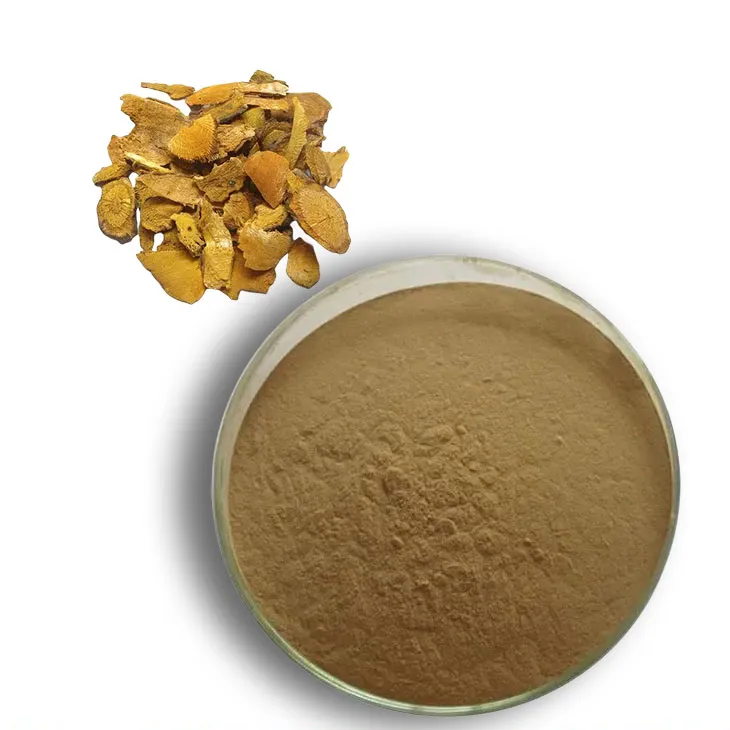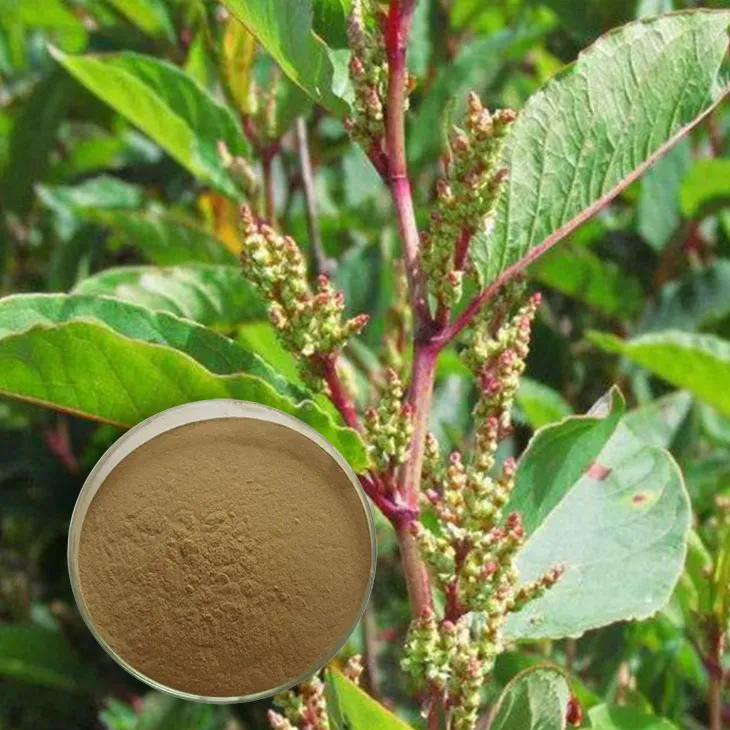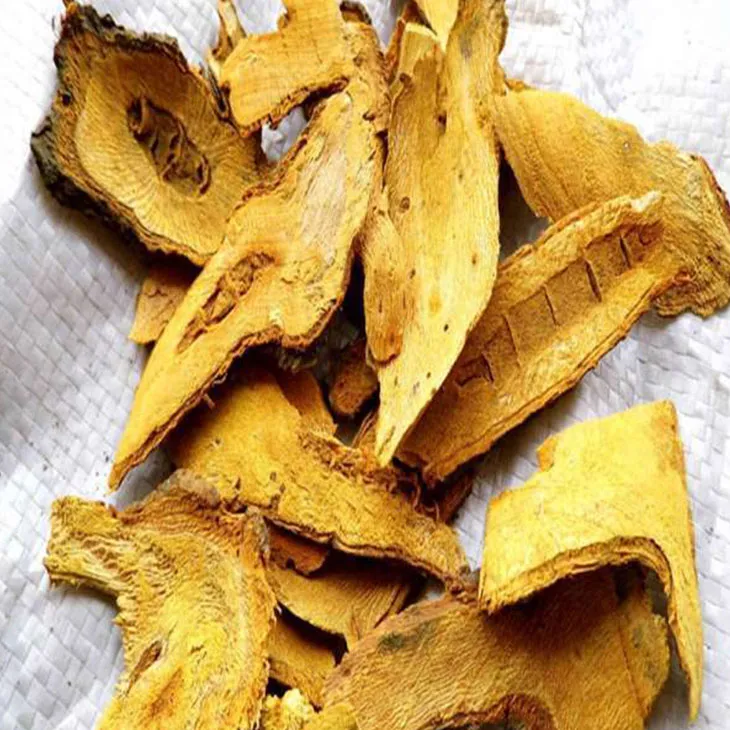- 0086-571-85302990
- sales@greenskybio.com
Benefits of Giant Knotweed Extract: An Impressive Extract on the Kitchen Table.
2024-11-13

1. Introduction
Polygonum cuspidatum, also known as Giant Knotweed, has been a subject of great interest in recent years. Its extract, Polygonum Cuspidatum Extract, is not only recognized for its potential in the field of medicine but also has the potential to be an interesting addition to the kitchen table. This article will explore the various aspects of this extract, from its traditional uses to its modern applications and potential benefits.

2. Traditional Medicine Significance
Traditional medicine systems around the world have long recognized the value of Polygonum cuspidatum. In Asian traditional medicine, for example, it has been used for centuries to treat a variety of ailments.
2.1. Ancient Uses
In ancient times, it was often used as a herbal remedy for inflammatory conditions. It was believed to help reduce swelling and pain associated with conditions like arthritis. Additionally, it was used to treat certain skin disorders. The knowledge of its use was passed down through generations, and it became an important part of the herbal medicine repertoire.
2.2. Preserving Traditional Knowledge
As modern medicine progresses, it is crucial to preserve the knowledge of traditional uses of plants like Polygonum cuspidatum. This knowledge not only provides a historical perspective but can also inspire further research into the plant's properties. By documenting and studying these traditional uses, we can better understand how the plant may have been effective in treating various conditions in the past, and potentially discover new applications for its extract in modern medicine.

3. Pharmacological Benefits
Extensive research has been conducted on the pharmacological benefits of Polygonum Cuspidatum Extract, revealing a wide range of potentially useful properties.
3.1. Anti - microbial Properties
One of the most notable pharmacological benefits of Polygonum Cuspidatum Extract is its anti - microbial activity. Studies have shown that it can be effective against a variety of microorganisms, including bacteria and fungi.
- In the case of bacteria, the extract has been shown to inhibit the growth of certain pathogenic strains. For example, it may have an inhibitory effect on Escherichia coli and Staphylococcus aureus, which are common causes of infections in humans.
- Regarding fungi, it can potentially be used to combat fungal infections. This is especially important as fungal infections can be difficult to treat, and the development of new antifungal agents is always in demand.
3.2. Cardioprotective Properties
Another significant benefit is its cardioprotective properties. The extract has been found to have a positive impact on heart health in several ways.
- It can help in reducing cholesterol levels. High cholesterol is a major risk factor for heart disease, and by lowering it, the extract may contribute to a healthier cardiovascular system.
- Polygonum cuspidatum extract may also improve blood circulation. By dilating blood vessels, it allows for better blood flow throughout the body, which is essential for delivering oxygen and nutrients to the heart and other organs.
- Additionally, it has been shown to have antioxidant effects on the heart. Oxidative stress is known to play a role in the development of heart diseases, and the antioxidants in the extract can help combat this stress, protecting the heart cells from damage.
3.3. Anti - inflammatory Effects
Building on its traditional use for inflammatory conditions, modern research has further confirmed the anti - inflammatory effects of Polygonum cuspidatum extract. Inflammation is a natural response of the body to injury or infection, but chronic inflammation can lead to various diseases, such as arthritis, diabetes, and certain cancers.
The extract contains compounds that can modulate the body's inflammatory response. It can inhibit the production of pro - inflammatory cytokines, which are molecules that play a key role in the inflammatory process. By reducing inflammation, the extract may help in the management of chronic inflammatory diseases and potentially prevent the development of related complications.

4. Potential in the Kitchen
While the pharmacological benefits of Polygonum cuspidatum extract are impressive, its potential as an ingredient in the kitchen is also an area of interest.
4.1. Flavor Profile
The extract has a unique flavor profile that can add depth and complexity to various dishes. It has a slightly bitter taste, which can be balanced with other flavors. For example, when used in savory dishes, it can be paired with sweet or acidic ingredients to create a harmonious flavor combination.
4.2. Nutritional Value
In addition to its flavor, the extract may also offer some nutritional value. It contains certain vitamins and minerals, although the exact amounts may vary depending on the extraction method. Incorporating it into the diet could potentially provide additional nutrients that are beneficial for overall health.
4.3. Culinary Applications
There are numerous ways in which Polygonum cuspidatum extract can be used in the kitchen.
- It can be used as a flavoring agent in sauces and dressings. A small amount of the extract can add a unique and interesting flavor to a simple vinaigrette or a creamy sauce.
- In baking, it can be added to bread or pastry dough to give a different flavor dimension. However, it should be used sparingly as its bitter taste can be overpowering if too much is added.
- It can also be used in the preparation of marinades for meats and vegetables. The extract can help tenderize the food while also imparting its flavor.
5. Modern Applications
In the modern era, the applications of Polygonum cuspidatum extract are expanding beyond traditional medicine and the kitchen.
5.1. Cosmetics
The extract's anti - inflammatory and antioxidant properties make it a potential ingredient in cosmetics. It can be used in skincare products to help soothe irritated skin and protect against environmental damage. For example, it may be included in creams and lotions designed for sensitive skin or anti - aging products.
5.2. Functional Foods
With the growing trend of functional foods, Polygonum cuspidatum extract could find a place in this market. Functional foods are those that offer additional health benefits beyond basic nutrition. The extract could be added to products such as energy bars, smoothies, or dietary supplements to provide its cardioprotective, anti - inflammatory, or anti - microbial benefits.
6. Safety Considerations
While Polygonum cuspidatum extract shows great promise, it is important to consider safety aspects.
6.1. Dosage
When using the extract, whether for medicinal or culinary purposes, proper dosage is crucial. Excessive consumption may lead to adverse effects. In the case of medicinal use, it is advisable to follow the guidance of a healthcare professional to determine the appropriate dosage based on individual health conditions.
6.2. Potential Side Effects
Although rare, some individuals may experience side effects from the extract. These can include gastrointestinal discomfort, such as nausea or diarrhea. If such symptoms occur, it is important to discontinue use and consult a doctor if necessary.
6.3. Allergies
As with any new ingredient, there is a possibility of allergic reactions. People with known allergies to plants in the Polygonaceae family should exercise caution when using Polygonum cuspidatum extract.
7. Conclusion
Polygonum cuspidatum extract is a remarkable substance with a rich history in traditional medicine and a wide range of potential applications in modern times. Its pharmacological benefits, including anti - microbial, cardioprotective, and anti - inflammatory properties, make it a valuable subject of research. In the kitchen, it offers a new and interesting ingredient with a unique flavor profile and potential nutritional value. However, safety considerations, such as proper dosage and awareness of potential side effects and allergies, must be taken into account. As research continues, we can expect to see even more exciting developments in the use of Polygonum cuspidatum extract in various fields.
FAQ:
What are the main pharmacological benefits of Polygonum cuspidatum extract?
Polygonum cuspidatum extract has several pharmacological benefits. It has been studied for its anti - microbial properties, which can help in fighting against various microorganisms. It also shows cardioprotective properties, potentially contributing to heart health by protecting the heart from certain damages or diseases.
How can Polygonum cuspidatum extract be used as a kitchen ingredient?
As a kitchen ingredient, Polygonum cuspidatum extract can be used in various ways. It might be added to certain recipes for its unique flavor profile. However, it's important to note that proper research and understanding of its culinary uses are necessary, as it is also a substance with pharmacological properties. It could potentially be used in the preparation of special sauces, dressings, or even as an ingredient in some health - conscious cooking, but always with caution and in accordance with food safety guidelines.
What is the significance of Polygonum cuspidatum extract in traditional medicine?
Polygonum cuspidatum extract has a long - standing significance in traditional medicine. In many traditional medical systems, it has been used for treating a variety of ailments. Its historical use may include remedies for certain infections due to its anti - microbial properties and for general health promotion. It has been passed down through generations as a natural remedy with potential healing properties.
What are the modern applications of Polygonum cuspidatum extract?
In modern applications, apart from its potential use in the kitchen, Polygonum cuspidatum extract is being further studied for its role in the pharmaceutical industry. Its anti - microbial and cardioprotective properties make it a candidate for the development of new drugs. It may also be used in the development of functional foods or dietary supplements, which are designed to provide additional health benefits beyond basic nutrition.
Is Polygonum cuspidatum extract safe to use?
While Polygonum cuspidatum extract has shown potential benefits, its safety also needs to be carefully considered. In high doses or without proper preparation, it may have adverse effects. It's important to follow the guidance of medical and food safety professionals when using it, especially if it is to be consumed. Pregnant or breastfeeding women, as well as those with certain medical conditions, should be particularly cautious and consult a doctor before using products containing this extract.
Related literature
- The Pharmacological Effects of Polygonum cuspidatum Extract"
- "Polygonum cuspidatum in Traditional Medicine: A Review"
- "Modern Applications of Natural Extracts: The Case of Polygonum cuspidatum"
- ▶ Hesperidin
- ▶ Citrus Bioflavonoids
- ▶ Plant Extract
- ▶ lycopene
- ▶ Diosmin
- ▶ Grape seed extract
- ▶ Sea buckthorn Juice Powder
- ▶ Fruit Juice Powder
- ▶ Hops Extract
- ▶ Artichoke Extract
- ▶ Mushroom extract
- ▶ Astaxanthin
- ▶ Green Tea Extract
- ▶ Curcumin
- ▶ Horse Chestnut Extract
- ▶ Other Product
- ▶ Boswellia Serrata Extract
- ▶ Resveratrol
- ▶ Marigold Extract
- ▶ Grape Leaf Extract
- ▶ New Product
- ▶ Aminolevulinic acid
- ▶ Cranberry Extract
- ▶ Red Yeast Rice
- ▶ Red Wine Extract
-
Tinospora cordifolia extract
2024-11-13
-
Saffron Extract Powder
2024-11-13
-
Lotus leaf extract
2024-11-13
-
Acerola Juice Powder
2024-11-13
-
Apricot Powder
2024-11-13
-
Coix Seed Extract
2024-11-13
-
White Willow Bark Extract
2024-11-13
-
Clove Powder
2024-11-13
-
Citrus bioflavonoids
2024-11-13
-
Ivy Extract
2024-11-13





















